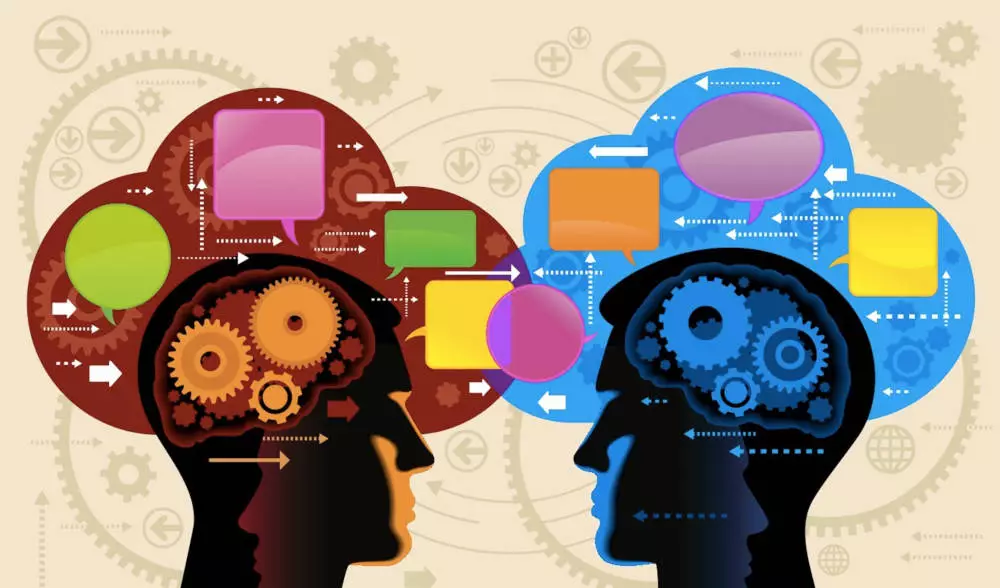What we think affects How we feel and act depends on our thoughts. What we do affects how we think and feel is behavior and what we feel affects how we think and act our emotions. The changing perceptions in these 3 things are related to Cognitive Behavior Therapy or CBT.
What is Cognitive Behavioural Therapy?
Cognitive-behavioral therapy is a treatment for a pattern of thoughts that results in negative behavior and emotions. CBT is a psychotherapeutic treatment that focuses on changing the thoughts of the patient from negative to positive.
Feelings like depression, anxiety, emotional difficulties are the results of negative thoughts which convert into positive through cognitive behavioral therapy. Hindi process of CBT the thoughts are identified, challenged, and further replaced with positive and realistic thoughts. There are many strategies for helping people to overcome these negative thoughts like role-playing, relaxation techniques, journaling, and other mental destruction activities which we will read in this article.
Types of Cognitive Behavioural therapy
CBT has a wide range of techniques and approaches that helps people to address their thoughts emotions and behavior. many specific types of approaches involved in CBT
- Cognitive therapy
Cognitive therapy focuses on identifying the thoughts and changing the inaccurate emotions and thinking patterns and behavior. - Multimodal therapy
In this therapy, the psychologist uses 7 different interconnected modalities to solve the psychological issues, these are – interconnected modalities behavior, affect, sensation, imagery cognition, biological consideration, and interpersonal factors. - Dialectical behavior therapy
Dialectical behavioral therapy also known as DBT focuses on emotional regulation and mindfulness strategies by addressing thoughts and behaviors. - Rational emotive behavior therapy (REBT)
It focuses on identifying the rational beliefs that the patient has, challenging these beliefs actively, and learning the techniques to recognize these thoughts and change the pattern of these thoughts.
Benefits of Cognitive Behavioural Therapy
Cognitive behavior therapy has many benefits on a short-term basis. this therapy helps people to treat their specific problem end teaches them to focus on present positive and rational thoughts and believes. It also helps to treat many disorders and conditions like
- Anxiety
- Depression
- Panic attacks
- Stress
- Anger issues
- Addictions
- Bipolar disorder
- Eating disorder
- Personality disorder
- Phobias etc.
Cognitive-behavioral therapy helps people to give hope about their condition by developing self-esteem. it helps people to relax about this situation by using a variety of relaxation techniques.
CBT develops more rational thought processes rather than negative ones. by helping people to control their thoughts and replacing negative thoughts with positive ones. It is a highly effective talking therapy that can be applied in a wide range. sometimes it is not suitable for everyone but you can also use other forms of therapy alongside to get the best results.
Strategies used in CBT
In CBT you have to form a specific pattern of thoughts that affect your emotions and behaviors. CBT shows that how negative thoughts can lead you to negative feelings, actions, and depression because of your negative mood. But if you convert your negative thoughts to +1 then it will be helpful for your behavior and mood.
The therapist teaches the patient 2 implements these changes and uses them for the rest of your life. The best approaches that the therapist can adopt are
- Identifying the problem
- Knowing that your thoughts can impact your life.
- Identifying the negative thoughts end replacing them with positive
- Learning new behaviors
After this session, the therapist will decide the best CBT strategy that he has to apply to you. The most commonly used CBT strategies are:
- Cognitive restructuring or reframing
In this strategy, the therapist takes a hard look at the Pattern of the negative thoughts. People assume that the worst will happen to give too much importance to the minor detail, this thing affects what you do and it can become a self-fulfilling prophecy. You have to identify your pattern of negative thought and once you know that these are your thoughts then you have to learn how to reframe these thoughts into positive ones. - Guided discovery
Guided discovery your beliefs add challenges and you’re thinking is broadened. the patient must be asked to give the evidence that supports their assumptions. And learn how to see things from other perspectives. - Exposure therapy
Exposure therapy helps to face fears and phobias. In this therapy the therapist helps you to cope with your fear and anxiety it is done in small increments. - Journaling and recording thoughts
This asks you to write down your negative thoughts as well positive ones and helps you to choose between them. this therapy helps you to exercise your thoughts and adopt new behaviors.
- Behavioral experiment
This experiment is usually for people with anxiety disorders. In this experiment, you will start with a lower anxiety task and build up from lower to upper.
- Relaxation and stress reduction techniques
Relaxation techniques like deep breathing exercises, muscle relaxation, imagery helps to lower the stress and increase your senses’ control.
Frequently Asked Questions
CBT is the most effective treatment for anxiety and depression. Early it works on a short-term basis but if it does not work you can also use other therapy alongside for better results.
Various techniques are available for practicing CBT. Most of them you can use at home like self-talk, invaliding irrational thoughts and behaviors, and replacing them with positive ones.
CBT affects depression but only moderate depression. You can use various techniques at home by yourself but if it doesn’t work then you need professional help.
There are no such disadvantage of CBT but for a person suffering from complex mental situations it becomes tough to undergo CBT as it involves confronting your emotions and anxiety.

